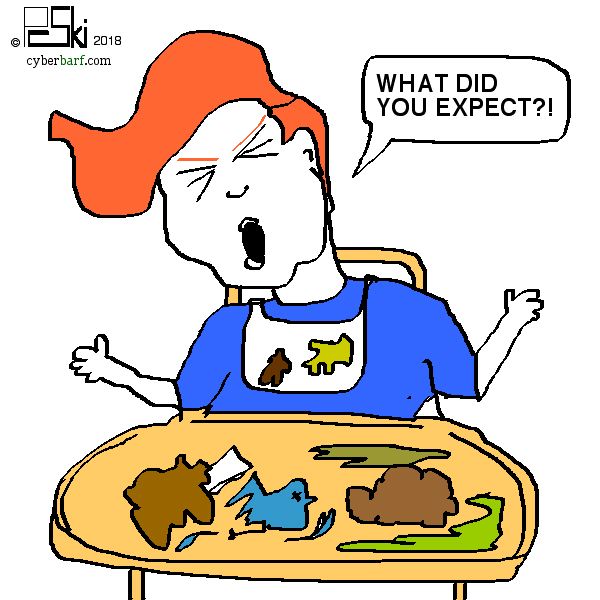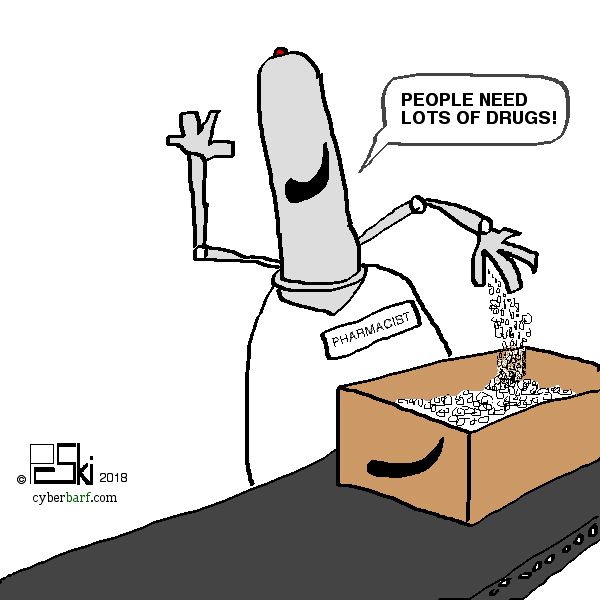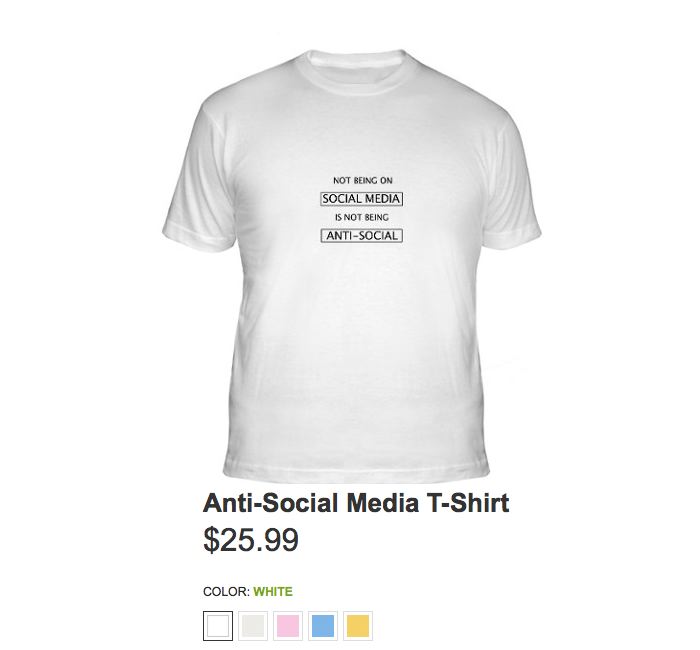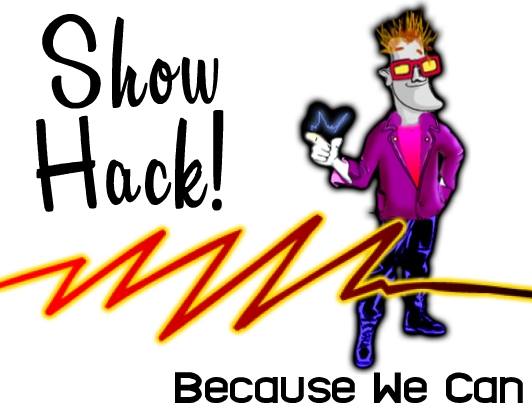 |
|
cyberbarf VOLUME 18 NO. 1 EXAMINE THE NET WAY OF LIFE AUGUST, 2018 ©2018 Ski Words, Cartoons & Illustrations All Rights Reserved Worldwide Distributed by pindermedia.com, inc.
NEW EPISODE:
|
LADIES PJs On Sale! |
|
|
|
Rock some site SUMMER WEAR. Check out our e-Store for current prices, sales and new items!
|
|
|
cyberbarf END OF SUMMER AND CHANGES SITE NEWS
Hi! I am Cyn, your cyberbarf hostess. The end of summer is a bummer. It went by so quickly. Time may be a constant but present realization is fleeting as temperatures rise and distractions increase. August means that the end of summer vacation is over. We have to go back to school, work, home or the daily grind in preparation for winter. This transition month harbors change, for good or bad. But this August marks an important milestone. It is cyberbarf's Sweet Seventeen Anniversary! Seventeen years ago, after the prodding of our tech guru, Ski launched this site under the guide to examine the net way of life. The internet was more primitive back when this site began. It was not the tentacle monster that is now front and center in every person's daily life; from work, play, entertainment, information, communication and commerce the web has taken over. In the past two months, we have been busy, perplexed and frustrated by the final death knell of the old way. It began when Ski's ancient web design software, DW 3.0, would no longer work with the home ISP service. Apparently the upgrade firmware was no longer Mac compatible. This is not a new thing. Back in the day, Windows ruled the computer world and Macintosh OS was classified as a step-child in tech circles. Ski has this stubborn streak of if it is not broken, don't fix it mentality. So he has taken is mobile, original iMac to his office network to log into his host server to upload current issues. Logging in through an old Netscape back door like some Cold War mystery novel. He has been using the same software, procedures and basic format for 17 years. It is kind of like the cult priests maintaining the Sphinx during ancient Egypt. But time, as the never-ending taskmaster, has come down hard on the past to force consideration to change to the modern age. Ski is also stubbornly protective of his security. He does not use cloud services. He practices what he preaches when it comes to handling over your hard drive to strangers under the illusory promise of security. He is beyond upgrading Dreamweaver software to the current version, because it is subscription cloud based. He wanted to find a simple alternative to change the site production towards a Worldpress type blog for desktop and mobile publication. He thought he found a simple one, but when he tested its FTP tools it would not access its directory. After several double checks, it still did not work. The support documentation is weak so he has lost confidence with this program. At the same time, his comic dedicated Mac flashed an error message that the hard disk was full. He tried to look for an old back up drive but could not find one in his museum of Macintosh. What he will have to do, he concluded, was to back up the hard drive onto a flash drive, delete some files, and get the computer back from edge of the cliff. This computer has all the current Show Hack files, his longest running Real News Komix strip. So we may not have a new issue until later this month. But he promises to stumble on until a permanent solution is found. But you have to admire the amount of tenacity. He has published a new barf every month for 17 years. He has added many different features. He has tried to provide a consistent outpost for his opinions on tech news and Internet life styles. How many web sites do you know of that have been around for 17 years? How many pairs of shoes do you own that are 17 years old? How many marriages do you know of that last 17 years? How many family pets last 17 years? Seventeen years is a long time. It is either a personal accomplishment or a mental curse. If you question his stability and devotion to making monthly content, Ski has been listening to a lot of Scandinavian metal like Ghost's “Rats!” In the context of public, tangible world, the net showcases more and more dystopian future with politicians polluting the digital streams with rants, tweets and utter nonsense; customers and shopkeepers are recorded in video fights; certain urban centers are filmed like they belong in Mad Max sets. So as summer ends with its final hot, blazing sun tan days, cyberbarf is not going to burn out due to technical issues. Just cross your fingers that Ski has enough time away from his real job to get his groove back. Thanks for stopping by our site! Check out our e-store and archives. And enjoy the final days of summer like a champion (web) surfer!
|
 |
FREELANCE CARTOONS, ILLUSTRATIONS FOR NEWSPAPERS, MAGAZINE, ON-LINE DO YOU CONTENT? CHECK OUT
|
|
iToons
cyberbarf AUGUST 2012 ANNIVERSARY CYBERSAFARI From cyberbarf's August, 2012 Anniversary Edition: does it hold up six years later? What do the futurists think will happen next? In a chilling repercussion of everything personal being available in the cloud, the idea of Thought Police forcing the will of vocal minority or elitist state is a grim possibility. As the lesson from Animal Farm, all men are created equal, but some are more equal than others. As the United States faded from a manufacturing superpower to a service economy with a lower standard of living, easy credit and mountains of debt continued to fuel the continued expansion of the consumer economy. But now, in a deep recession, at a terrible cost. Government officials began paying themselves more than the private sector, and then added on massive pensions 20 times more than a person could receive in Social Security retirement benefits. Slowly, state and local government budgets have been consumed by these employee benefit obligations to the point where many states have borrowed billions of dollars just to meet payrolls and long delayed vendor payments. As the media focus is on the financial plight of Greece, Spain and Italy - - - the same is happening in the United States. The Internet should have been the transparency technology to give the people an advanced warning on the trouble ahead. But the Internet as a powerful productivity research tool has been sidetracked into an unproductive means of diversion, entertainment and personal gratification. There are some organizations who see personal liberties being eroded by government actions in trying to police or regulate the Internet But most people don't realize that their constitutional rights are being transformed by overzealous politicians into unconstitutional privileges to be determined by the career political ruling class. Once a basic freedom is lost, it is almost impossible to regain. The system enforces the change in freedoms upon the people. If one looks back at the Arab Spring, where several Middle Eastern countries with educated but highly unemployed populations, took to the Internet and social media to organize large protests against the dictators running their countries. They demanded freedoms. They wanted solutions to their economic hard times. They wanted the freedom to create their own opportunities. They wanted real elections so they could have real representation, not rubber stamped bureaucrats from the military or ruling party. The wired electorate made quiet a statement until the bloodshed backlash; in order to even re-gain the status quo, the protesters had to battle in the streets. Life is not a video game, it is life and death struggles. If the web as a baby in 2000, the Internet has grown into a rebellious, needy, self-absorbed teen. Kids are looking to get their first electronics (iPods, iTouch, electronic game players) before pre-school. By the time a child gets into elementary school, many have cell phones. By the time they go to middle school, the kids have their own social media accounts (Twitter or facebook). Parents shrug thinking that is the way children communicate today. Instead of personal one-on-one activities, more and more social engagements are virtual. There will be studies on whether this virtual childhoods will interfere with the development of basic interpersonal relationship skills that are needed in finding a job, interacting with customers or solving problems in collective projects. More and more application developers are selling software that makes a person think less on their own. Students are now being taught where to find information and not how to find the authoritative information. Instead of opening a curtain, a tap on an app icon to see what the weather is outside. It is doubtful that many people can unfold a printed map and navigate themselves from point A to point B. They rely so heavily on GPS navigation devices that any inherent sense of direction becomes dormant. Such a point and click end result only leaves a void in the actual learning process: if one uses a finger to trace the route on an actual map, one could see the names of the towns in the path, or other areas of interest noted on the map. The same is true in history questions. One can google the answer for the question who led the troops crossing the Delaware (George Washington) but lost to the student is the reason WHY the army was crossing the river in the middle of winter (as contained in the paragraphs in a textbook describing the crossing). It is not that children and adults are dumber than their ancestors. It is that there is a less desire to gather more than the bare minimum of information. The world's knowledge base has never been greater, but an individual's comprehension of it is not keeping up. In Colonial America, there was a higher literary rate than currently in the USA. Being able to read and write was a requirement to be able to get out of a life of unskilled labor towards being a craftsman or a professional. Today, college educated recent graduates have a higher unemployment rate than displaced workers. Social media has transformed how many people think of themselves. It seems that everyone is “over sharing” their personal information in almost in an open diary way. What you have done that minute, what you like, what you plan on doing, what your friends say - - - is somehow tied to a school clique notion of trying to be “liked” by the in-crowd. Having strangers peek into your circle of friends comments is in some respects creepy. But even worse, the social media operators are taking all your personal information like milking cows and selling the information to marketing and advertising firms. Data mining is the seedy underbelly of the social media business. Nothing in life is free. People are being transformed into a new commodity: information. And once that personal information is out in the network, its privacy is lost forever. Some people are really naive about their postings. Many people do not realize that potential employers will search the web for an applicant's postings to get some insight on a job candidate. Drunken mid-week party pictures on your facebook page will not create a favorable reaction to a human resources director who is looking for a qualified, hard working and responsible individual. And once your personal data has been data mined, this information can be compiled into target specific advertising and spam. How often have you gone to a web retailer's site, and a day later you get several emails from that retailer in your in-box? Spyware, cookies and malware are taken now as mere potholes in the information highway. But those loopholes will continue to be exploited by others. In a weak service economy with high unemployment and a disillusioned work class, there may be a shift to what people believe is “more valuable” than objects in the past. The growing trend is that more people value information (raw data to manipulated data) because that is the only feasible means to scrape out a living. Instead of a pick and a hoe making furrows to grow potatoes in a field, people are picking and gathering information to create apps to sell in web stores in the hope of eeking out a payday down the road. In some respects, the large supertech corporate research and development departments are receding towards an early Industrial Revolution cottage industry approach to information technology. The interconnected global economy more fragile than ever with unpayable debts and social welfare class entitlement politics. We may return to the pre-Industrial revolution cottage industries of independent individual risk takers meeting a niche need in their local community (de-globalization as the solution to world recession). It's an App, App, App World out there. The limited feature freeware tease in order to have people impulse buy the full app for a few dollars is a hard business model to earn a living from; many developers spend a year getting their ideas working on a platform to find that the platform has changed, users interests have changed, or twenty other people had the same idea and their apps are also for sale. Companies are forcing individuals to give them their data. Under the guise of the ease and instant access to “all” your information and files, the Cloud computing and the battle over one's own information is going to be the conflict for the next decade. In simple terms, Cloud computing is giving a stranger your back up files to hold on its servers. You pay the Cloud service provider a fee to hold your information. However, in some contracts, these service providers want to own, use or manipulate your data. But who really reads the fine print, certainly not the naive facebook users. The cloud universe is another means of “contractually” data mining one's own customers to feed the information commodity assembly line. The genie is out of the bottle on corking access to information. People are unknowingly being farmed with each keystroke in the Internet daily lives. On the other hand, people who are creating content for web distribution are still caught in the cross hairs of the illogic of web users who still believe that free access to the Internet means that everything on the Internet should be free for the taking. It is an absurd idea but it continues to gain traction with the news and information aggregators who take other people's work and slap it on their pages for advertising views. Creative rights in new culture of free web content will be a sore subject for years to come. There are a few early adopters who have struggled nurturing their hobby interests into personal content expressions into web careers. A person creating a daily or weekly podcast on their favorite thing (games, technology, computers) who finds a following can slowly turn that fan base into a web cast, video show, books, appearances and a career. The independent risk takers are often rewarded for their years of non-monetized content production until they are noticed by a bigger fish in the content stream. These new Content creators have embraced and changed the distribution platform of the web. YouTube has turned from an amateur video upload parlor to designated and subscriptions channels (a kin to a growing cable network system) The new channels to distribute the New Content (web shows, podcasts, YouTube channels, video game boxes, interactive television streaming non-big media shows) has taken traction. And as a result, web show hosts have the demographics to be courted by traditional media to bridge the traditional cable show arena and their niche web programs. Older media players are going to continue to struggle to keep the hearts and minds of their viewers. People are more easily entertained by the dumb crash videos on YouTube than watching a prime time network show. Some die hards would rather get the big budget movie experience in their combat video game than going out to the theater. Game developers have caught on to this trend by putting in high quality animation cut sequences in complex game stories. And the game box controllers are also getting into the digital distribution area: X-Box and others are now offering streaming services of non-game content like television shows and movies. The new means of content distribution will change rapidly in the near future. People will leave the tether of the cable wire to be able to “program” their own personal entertainment channel by grabbing shows, games, digital books and magazines through a hub to their smart phone or tablet device. The question will be who will be the gatekeepers, if any, who will direct the future of information consumption. One of my long held thesis was that everything that happened on the TV Show MAX HEADROOM has come true. If you look at the episode summaries, you may agree with my assessment. In a despotic world (20 Minutes in the Future), the information age has created a wide gulf between classes. Network news has mostly turned into entertainment. The latter is a sobering thought in modern America: we have more access to information than ever before, but the general public is less knowledgeable on current events than ever before in the nation's history. Many South American dictators found out that if they controlled the media, they could control their people. Likewise, if the people don't care about the news or what their government is doing (to them), leaders can control their people like herding sheep. And that is a persistent danger in a democracy: apathy. People have become more apathetic to local and national news because they divide their time more towards their personal interests. So the future is both bright and grim. The dichotomy is apparent from the promise and the reality of the Internet age.
|
|
|
 |
 |
|
cyberbarf THE WHETHER REPORT |
cyberbarf STATUS |
| Question: Whether government cyberattacks will become the new means of conducting stealth, undeclared wars? |
* Educated Guess * Possible * Probable * Beyond a Reasonable Doubt * Doubtful * Vapor Dream |
|
Question: Whether the continued blood shed in firing daily newspaper reporters will lead the mainstream media to become scandal tabloids instead of hard news organizations? |
* Educated Guess * Possible * Probable * Beyond a Reasonable Doubt * Doubtful * Vapor Dream |
| Question: Whether the digital information age is making human beings collectively stupid? |
* Educated Guess * Possible * Probable * Beyond a Reasonable Doubt * Doubtful * Vapor Dream |
|
LADIES' JAMS MULTIPLE STYLES-COLORS $31.99 PRICES TO SUBJECT TO CHANGE PLEASE REVIEW E-STORE SITE FOR CURRENT SALES
|
PRICES SUBJECT TO CHANGE; PLEASE CHECK STORE THANK YOU FOR YOUR SUPPORT!
NEW REAL NEWS KOMIX! SHOW HACK! |
 |
cyberbarf
Distribution ©2001-2018 SKI/pindermedia.com, inc.
All Ski graphics, designs, cartoons and images copyrighted.
All Rights Reserved Worldwide.














